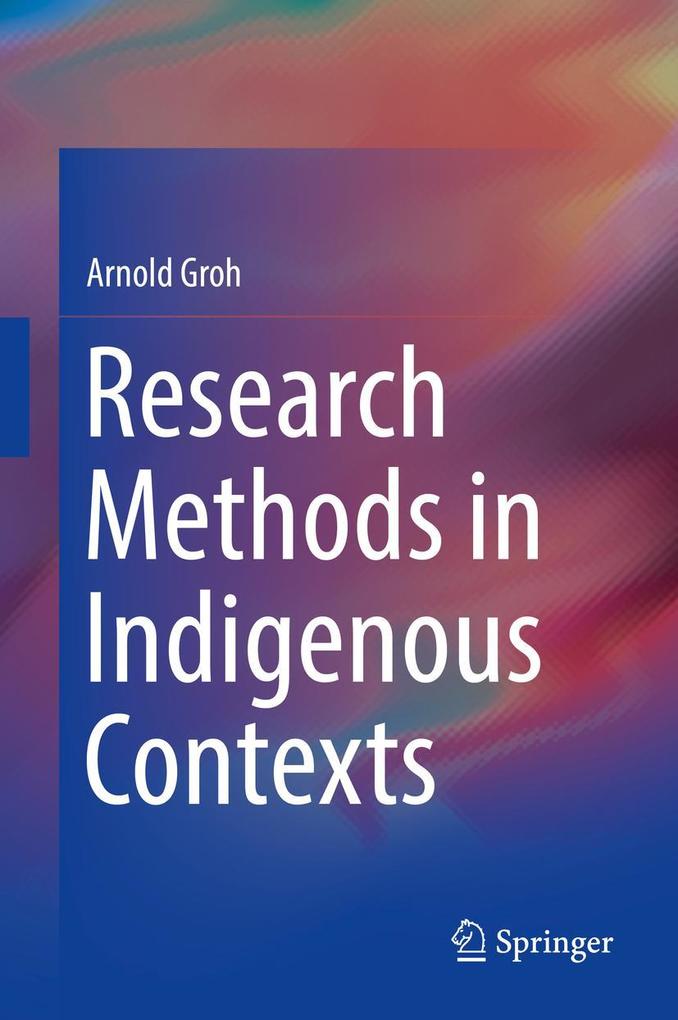
Zustellung: Fr, 04.07. - Di, 08.07.
Versand in 1-2 Wochen
VersandkostenfreiBestellen & in Filiale abholen:
This forward-looking resource offers readers a modern contextual framework for conducting social science research with indigenous peoples. Foundational chapters summarize current UN-based standards for indigenous rights and autonomy, with their implications for research practice. Coverage goes on to detail minimally-invasive data-gathering methods, survey current training and competency issues, and consider the scientist's role in research, particularly as a product of his/her own cultural background. From these guidelines and findings, students and professionals have a robust base for carrying out indigenous research that is valid and reliable as well as respectful and ethical.
Among the topics covered:· Cultural theories and cultural dominance.
· The legal framework of research in indigenous contexts.
· The role of language within indigenous peoples' cultural rights.
· Methodology: how to optimally collect data in the field.
· Researchers' influence and philosophy of science.· Learning how to prepare research in indigenous contexts.
Research Methods in Indigenous Contexts is an important reference benefitting a wide audience, including students and researchers in the social sciences, humanities, and psychology; decision-makers of NGOs and GOs that act with regard to humanitarian aid, for tourism projects, or any other contingency with indigenous contexts; and policymakers interested in the aspects of human activity upon which indigenous cultural concerns are based.
Inhaltsverzeichnis
1. Introduction. - 1. 1 Indigenous Contexts. - 1. 1. 1 Transgenerational Traumata. - 1. 2 Cultural Theories and Cultural Dominance. - 1. 3 Transcultural perspectives and conceptualisations. - 1. 4 Synthesis and dominance - the mechanisms of change. - 2. The legal framework of research in indigenous contexts. - 2. 1 Historical aspects. - 2. 2 Acknowledgement of indigenous identity. - 2. 3 Right to self-determination. - 2. 4 Protection of culture. - 2. 4. 1 The Role of Language within Indigenous Peoples Cultural Rights. - 2. 4. 2 Indigenous Culture and Intellectual Property. - 2. 5 Revitalisation of culture. - 2. 6 Cultural autonomy in education and lifestyle. - 2. 7 Reflection of culture in media. - 2. 8 Land rights. - 2. 8. 1 Protection of territories. - 2. 8. 2 Land use. - 2. 8. 3 Mitigation of adverse impact. - 2. 8. 4 Right to redress and compensation. - 2. 8. 5 Indigenous cultures and borders. - 3. Methodology - how to optimally collect data in the fields. - 3. 1 History of transcultural field encounters. - 3. 2 Field encounter as quasi-experimentation. - 3. 3 Researchers influence and philosophy of science. - 3. 3. 1 Vulnerability and resilience. - 3. 4 Epistemology. - 3. 4. 1 Qualitative and quantitative methods. - 3. 4. 2 Validity. - 3. 4. 3 Reliability. - 3. 4. 4 Objectivity. - 3. 4. 5 Ethical aspects. - 3. 5 Minimally-invasive techniques. - 3. 5. 1 Total immersion. - 3. 5. 2 Rescue work. - 4. Field research in indigenous contexts. - 4. 1 The scientist as a psychological being. - 4. 1. 1 Researchers and their culture of origin. - 4. 1. 2 Rationality and irrationality. - 4. 2 Meta-perspectives. - 4. 3 Transcultural competency. - 4. 4 Education and training. - 4. 4. 1 Learning how to prepare research in indigenous contexts. - 4. 5 Culturally sustainable field research. - 4. 5. 1 Practical aspects. - 4. 5. 2 Being prepared for tropical diseases. - Epilogue.
Produktdetails
Erscheinungsdatum
12. Februar 2018
Sprache
englisch
Auflage
1st edition 2018
Seitenanzahl
244
Autor/Autorin
Arnold Groh
Verlag/Hersteller
Produktart
gebunden
Abbildungen
VIII, 236 p. 5 illus.
Gewicht
580 g
Größe (L/B/H)
241/160/18 mm
ISBN
9783319727745
Entdecken Sie mehr
Bewertungen
0 Bewertungen
Es wurden noch keine Bewertungen abgegeben. Schreiben Sie die erste Bewertung zu "Research Methods in Indigenous Contexts" und helfen Sie damit anderen bei der Kaufentscheidung.








